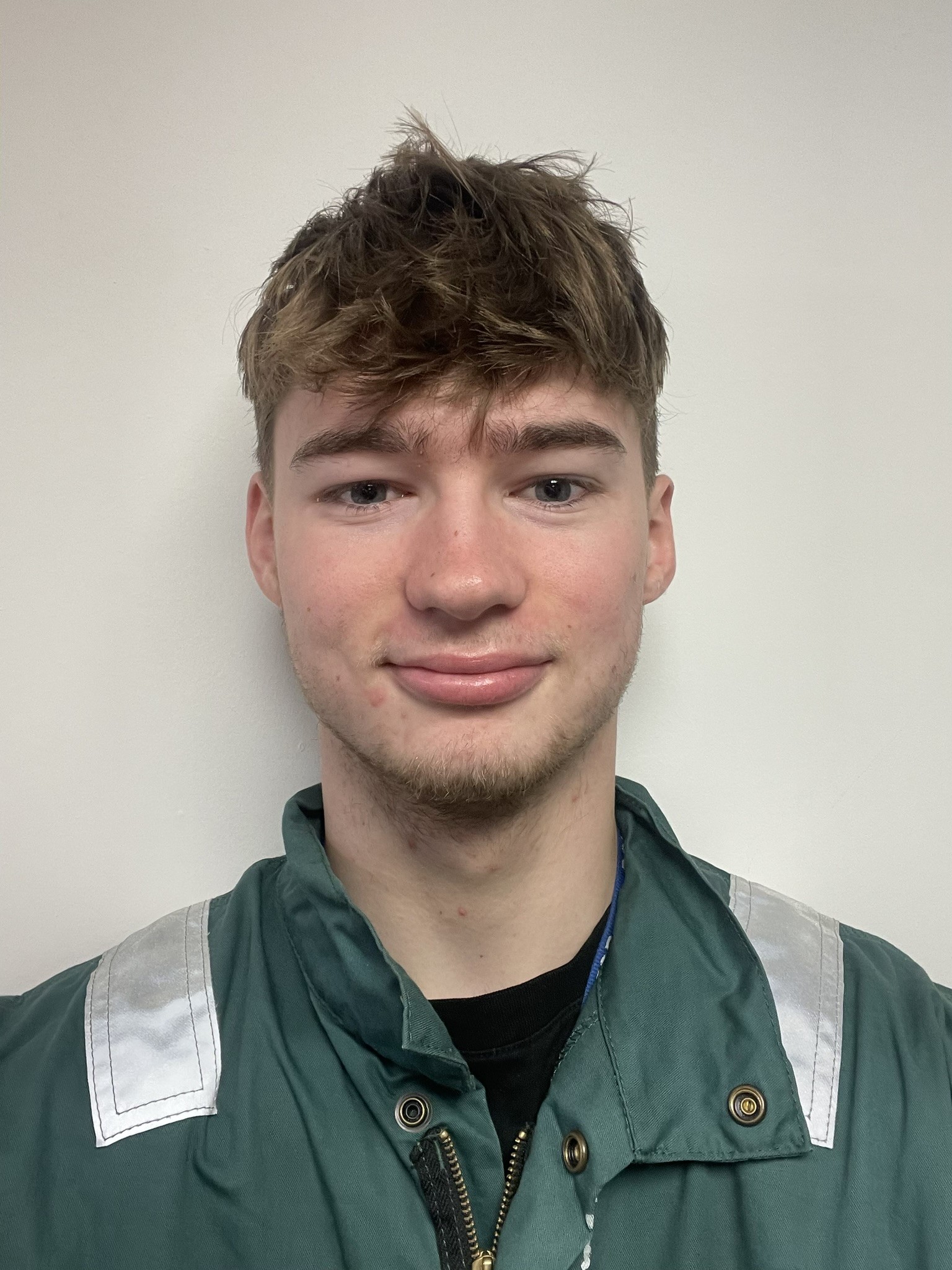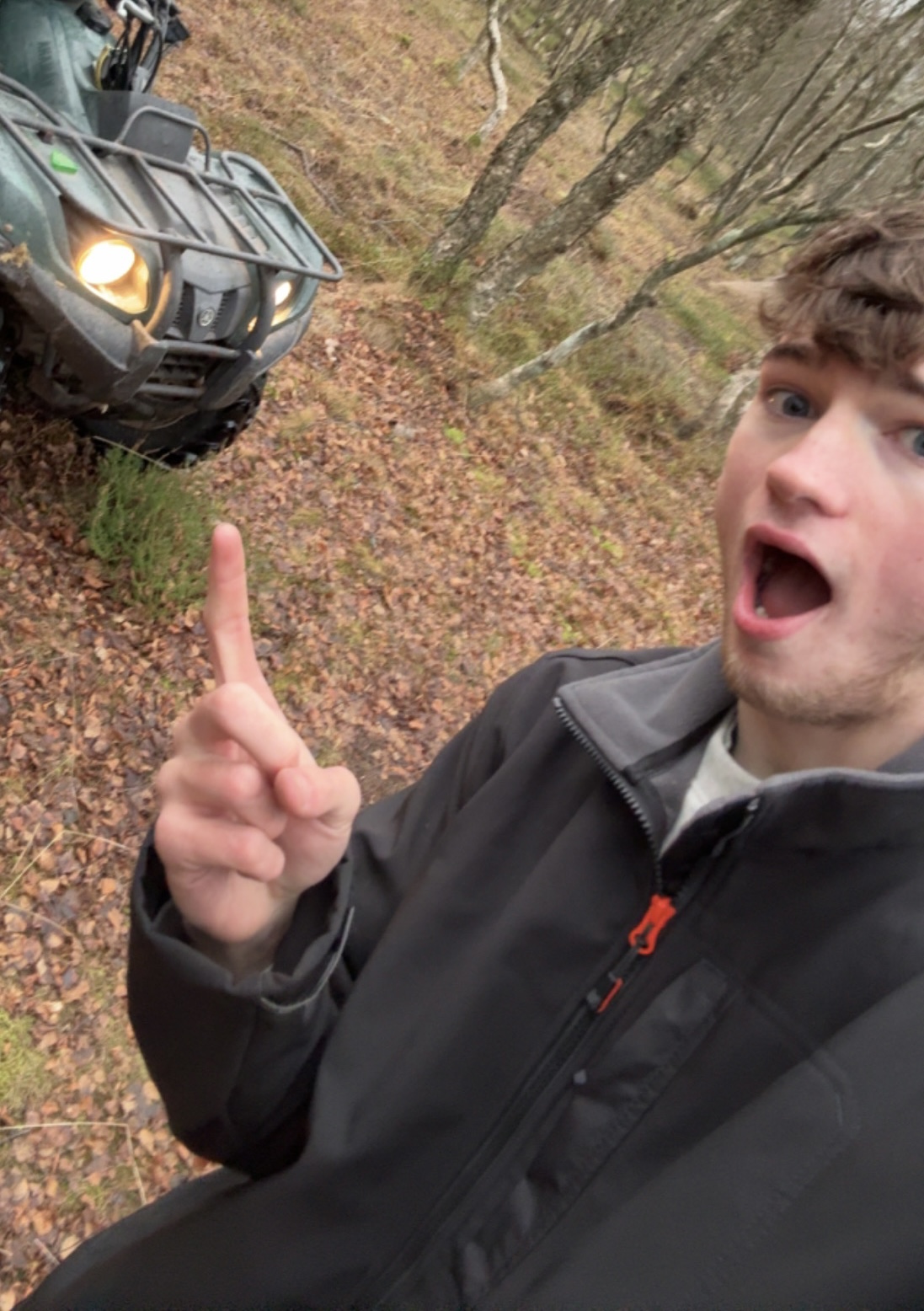Almost two years ago, a teenage high school student in Scotland applied for the New Product Introduction (NPI) apprenticeship in energy technology at Baker Hughes.
“Every year we get a gem in the Baker Hughes apprentice program,” says Andy Inglis, New Technology, Product Development & Testing Team Leader at Baker Hughes subsea Center of Excellence in Montrose, Scotland, UK.

This year, Andy and other leaders in Montrose are singing the praises of Luke Duncan, 19-year-old apprentice NPI engineer from Aberdeenshire. His contribution during his first year with the company has earned him recognition as a Baker Hughes Emerging Talent, as part of a company-wide campaign.
In the UK, an apprenticeship is a paid job where the employee learns and gains valuable experiences.
Alongside on-the-job training, apprentices spend at least 20% of their working hours completing classroom-based learning with a college, university or training provider which leads to a nationally recognized qualification.
An apprenticeship includes:
paid employment with holiday leave
hands-on-experience in a sector/role of interest
at least 20% off-the-job training
formal assessment which leads to a nationally recognized qualification
Who can apply?
An apprenticeship is a great paid work opportunity for people over the age of 16 in England who are:
early in their career
looking to up-skill in their current job
looking for a career-change
not in full-time education

“The work that Luke is doing, even at this early stage, is a massive benefit to our department,” says Andy. “It will have a great impact on some of the projects that we're looking to win.”
Luke has been involved in working on a tubing hanger annulus isolation device (THAID). The tubing hanger sits in the bore of the subsea vertical tree system, providing a link between the well head and the tree and enabling control over the flow of hydrocarbons. To be added through the annulus during installation, the AID plays a vital role in isolating the annulus and forming a barrier that enables removal and maintenance of the tree system without compromising well integrity.
I was in Luke's shoes as an apprentice 22 years ago, and he could certainly achieve a similar position. He has been a positive addition to our Montrose team.
Andy Inglis, Luke's manager
Question
Energy Forward: Luke, how did you come to work here in the NPI department?
Luke Duncan:
It started in high school. I was quite good with my hands, in metalwork and woodwork, and in tech subjects. I thought I would go into engineering of some kind. My dad works in offshore oil and gas production, and my older brother Michael also did his apprenticeship with Baker Hughes, so the energy industry runs in our family.
Question
Tell us about your current role. What does it involve?
Luke:
At the minute I'm doing a bit of fitting – taking stuff apart, cleaning it, putting it back together. In the past couple of weeks, I've done some work on an annulus isolation device [AID], a small but important Baker Hughes innovation used on subsea trees. A feature of the device is the industry-first operating temperature range of -18oC to +121oC. I’ve been hands on, testing the AID under high pressures and at different temperatures, and working on streamlining the documentation that supports it.
The testing of the THAID is part of an innovative piece of work that has qualified Baker Hughes as a vendor. Qualification has in turn allowed the company to begin quoting and delivering on a number of business-critical projects.

Question
The Baker Hughes Montrose site was upgraded in 2019 to become a Center of Excellence in deep water technology. What does that mean to you?
Luke:
Some of the tools we use are more advanced, and as apprentices we also work very closely with engineers on specific projects. I think being part of a Center of Excellence will benefit what we're able to achieve in the future – helping the oil and gas industry adapt to the demands of a lower-carbon world.
Question
Did you come into this apprenticeship straight from school?
Luke:
I went to Mearns Academy high school in Aberdeenshire, and I left a year early to pursue this apprenticeship. Currently, I'm at Dundee and Angus College in Arbroath, studying for a Higher National Certificate in tandem with my work at Baker Hughes.
I’ve been almost a year on site at Montrose, and before that I also did a year of off-site training in basic engineering practice: machining, using lathes and mills, and doing hand fitting. Although some of it was like what I do now – taking stuff apart, cleaning it, putting it back together and testing to make sure it works again – applying those skills to projects at Montrose is new and exciting.

Question
How does the apprentice system work here at Montrose?
Luke:
It varies. Some of the apprentices are doing rotations through different departments, but Andy and I had a chat, and decided it would be more beneficial for me if I stayed in New Technology and Product Development and Testing for the duration of my apprenticeship.
Question
Are you assigned a mentor?
Luke:
I'd say everyone in this department is a mentor to me. Andy's my manager. If I have any problems with what I’m assigned, I speak to him. But then there are other experienced engineers who I get along with very well. They’ve helped me build skill sets and get my mind around the flow of work here. They’ve also told me to keep my mind open about future opportunities.
Question
What excites you about working in energy?
Luke:
There are good opportunities to change where energy goes next. Now I only play a small part in it, but the way forward as we adapt to the changing climate looks exciting.
I think oil and gas have a place in the future. It sometimes seems like the world is trying to phase them out, but I don't think that will happen. The industry will just have to change its ways to become more sustainable.
The scope in our field is broad. It can be very future-tech stuff. Being young, I get to do a lot of computer work and less of the manual procedures. But I also work on some old tech as well – stuff developed in the 1980s and 1990s – and you learn from that. A lot of our equipment has a long lifespan and for us younger people it’s important to understand how it functions, so we can offer continuity of service as other people retire.
Question
You work shifts. Why is that necessary in this department?
Luke:
It helps our projects to consistently progress. Right now, there are two of us on for the next four days of 12 hours a day, then two other people come in and do four days of 12 hours, and then we’re back on.

Question
What do you think of the lifestyle of being an apprentice New Product Introduction engineer?
Luke:
It's pretty good. You get to know a lot of people. Your job is varied – you're not doing the same thing for years and years. It also pays quite well, so you can enjoy life outside of work – I’d say I am one of the more well-off students in my friend groups.
The people at Baker Hughes are also very friendly. You could speak to anyone on site and talk about anything. I find everyone here cares for each other. It’s a good-vibe company to work for.
Question
Where do you see the opportunities for someone with your skills? Where might you go next?
Luke:
I can imagine being an engineer for most of my life, but I’d like to go offshore for a bit, because that does seem quite fun. I’d also like to progress through the ranks and become higher up at some point. I don't want to foreshadow Andy on this, but I may be gunning for his job in the future.
As his direct manager, Andy strongly believes there are a few different options the future for Luke, given his aptitude and his attitude.
Luke quickly gains an understanding of things and produces work to a high standard. He could move into an office-based engineering role, which could potentially tie in nicely with the Higher National Diploma he’s looking to pursue after his current certificate
Andy Inglis, Luke's manager
Energy Forward Stories
Sign up to stay up to date on the latest innovations and people shaping the future of our industry.




